- Home
- JoAnn Ross
On Lavender Lane Page 6
On Lavender Lane Read online
Page 6
“You knew I’d been married before,” the stranger stated in a tone as cool and sterile as the décor of the room. “You knew those marriages had failed. I told you repeatedly that I don’t believe I possess the marriage gene. But you refused to listen.”
He had. And she had.
Her bad.
No, Madeline reminded herself firmly as an encouraging flare of anger flashed through her. His.
“I also warned you about the difference in our ages,” he continued defending the indefensible. “I knew you were too young. But I couldn’t resist your entreaties.”
“It wasn’t as if I got down on my knees and begged,” she muttered. But, admittedly, she’d come damn close. “Besides, my father was seventeen years older than my mother.”
“I’m well aware of that. Given that you pointed it out on a regular basis even before we began living together.”
She hated that he was calm when she was not. Hated that he had the gall, after what he’d done, to use her own words against her.
She repeated what she’d always said. “They were totally compatible. In their marriage and in the kitchen. And my father never, ever strayed.”
He shrugged as he refilled his glass from the decanter on the outrageously expensive ultramodern glass console table the designer had said would be perfect in the space. The table Maxime loved. The one Madeline found lacking in any warmth. Like the rest of the penthouse.
The kitchen was the only place she’d ever felt even the slightest bit comfortable. Unfortunately, it was also Maxime’s realm, and she was basically relegated to saucier whenever they prepared the rare meal together.
After they’d returned from their honeymoon, Madeline discovered that instead of working side by side, as she’d imagined, her new husband was putting her at the front of the house at his restaurant, where she was expected to serve as both the dining room manager and hostess.
“Your beauty and charm bring my dining room to life, darling,” he’d insisted. While admittedly flattered, she hadn’t devoted all those years learning how to cook to end up spending each evening wearing Spanx beneath long black gowns, standing on foot-killing heels, greeting guests, and keeping service humming, all the while continuing to smile until her lips felt frozen.
He’d assured her it would only be temporary. But one month had turned into two. Then six. Then a year, then, before she knew it, although she was occasionally called in to help out on the kitchen line, most of her time was spent up front, and locked away in her office, running the financial side of the restaurant while her husband ruled supreme in the kitchen. On those increasingly rare occasions he was actually in the city. Most of the actual cooking had been taken over by his sous chef. Who was—no surprise, given the chauvinism of the business—male.
She’d believed him when he’d told her the trips were business. But now she was forced to wonder the same thing Katrin’s husband was allegedly trying to discover for his own reasons. How long had the couple’s affair been going on?
“Children don’t always know what goes on in a marriage,” he pointed out, dragging her mind back from that vexing thought to their conversation and her firm belief in her parents’ fidelity.
“Spoken like a man who’s never had, or even wanted, a child,” she snapped. Then took a deep breath.
One thing at a time. And right now her bastard husband’s unwillingness to have a family wasn’t an issue on the table.
“My mother first brought me to spend days at my family’s restaurant in Umbria when I was an infant,” she said. Again repeating what she’d told him whenever the subject of children had come up. “I grew up there. I did my homework in the dining room before the restaurant opened for dinner. I spent most of my waking hours until I was thirteen years old at Trattoria Gabriella, and all I ever saw was love and respect. It was obvious to anyone who ever saw them together that they were soul mates.”
Hadn’t her mother always said that Nikos Galinas, Maddy’s Greek father, had taught her mother to cook with passion, while her father, in turn, claimed that his dazzling Gabriella had taught him to cook with soul?
“Do you know the trouble with you, Madeline?”
“No. But I’m sure you’re going to tell me.”
“You’re a romantic.”
“Guilty as charged.” Madeline was annoyed at how he made it sound like a flaw. “Which is why I cook from my heart instead of creating flashy, pretentious dishes designed to impress magazine critics and self-important foodie bloggers.”
Bull’s-eye.
His brows lowered above narrowed eyes. “Is that what you’re accusing me of doing?” He splayed his hand across his chest. “Moi?”
“How long has it been since you’ve actually prepared a meal, or even a single dish, at any of your restaurants?”
He looked at her as if she’d gotten her degree not from the prestigious Culinary Institute of America, but from an online correspondence course. “We’ve been through this before, Madeline. I’m a visionary.” There it was again. That condescension she’d grown accustomed to hearing in his tone. “I create the concept, then hire people to carry it out for me.”
Madeline wasn’t totally naive. She knew many chefs who’d built careers these days doing that same thing. But it was still so foreign to the way she’d grown up. The way she’d always thought she’d run her own restaurant. Someday. Marrying Maxime had sidetracked that dream.
“People always loved it when my parents greeted them when they arrived. Or at least came out of the kitchen at the end of the meal. It made their experience more personal.” And if there’d been a problem, like overcooked scallops, they would have damn well known it immediately and made things right.
“So you’ve said. Time and time again. And as I’ve tried to explain it to you, time and time again, as impressive as their personalizing the diners’ experience was, and as much as they undoubtedly enjoyed greeting their guests, their restaurant was much smaller. More intimate. And undoubtedly run at a slower pace.”
“Italians enjoy savoring their food without having to feel they’re being chased off so the chef can turn over tables faster.”
He sighed. Heavily. As only the French could do. How was she suddenly the one defending her position?
“Times are different now,” he insisted. “People who buy an Armani suit don’t expect Giorgio Armani to be toiling away in some backroom sweatshop, personally sewing all the seams. Diners today are seeking a star-power experience in a fabulous environment that they can brag about to all their friends. They don’t care who’s actually preparing the food.”
He was right about one thing: They’d had this conversation too many times to count. And it was more than obvious, even apart from his infidelity, that they’d never reach agreement.
He’d steamrolled over her, as he always did. By their second anniversary, which she’d spent alone, he’d opened restaurants in Miami, Washington, and Chicago.
Fortunately, there’d been the whales to keep the Durand restaurant empire afloat.
The little-known secret of the culinary world was that high-end restaurants such as Maxime’s—with its enormous fresh floral arrangements, heavy silver cutlery, and white tablecloths—had relied on the “whale” customer, regulars who thought nothing of ordering a thousand-dollar bottle of wine to go with their hundred-dollar dinner, and putting the tab on their overblown expense accounts.
Then, seemingly overnight, the stock market plunged; 401(k)s turned into 201(k)s; the rich became if not poor, then a lot less rich; and the testosterone-driven whales, who for so long had seemed driven to outspend one another, stopped coming. In droves.
When television news cameras showed you getting called before Congress to explain your business practices, being seen eating at Chez Maxime’s on Columbus Circle wasn’t exactly in your best interest while you were trying to dodge indictment.
Nearly overnight, receipts at Maxime’s New York and D.C. restaurants plummeted fifty percent. Along with a
thirty-percent dive in Chicago.
While many chefs were forced to close their doors and others slashed their prices or offered two-for-one specials, free wine, and even early-bird specials, Maxime insisted gourmands who appreciated and understood great food would continue to pay for quality.
“Being a four-star chef is like being a shark,” he said, adding Los Angeles, Dubai, and Miami to his empire. Since building the overpriced, money-devouring Maxime’s Las Vegas, their bank account had begun bleeding so much red ink, it looked as if someone had spilled a barrel of pinot noir on the monthly statement. “If you don’t keep moving forward, you die.”
“Now you’re moving on,” Madeline said flatly.
He did not deny it. “It’s for the best.”
Tears she’d refused to shed stung her eyes. Looking at this man she’d thought she’d spend the rest of her life with was like looking through the rain-blurred window.
“Do you love her?”
He lifted his shoulders in that Gallic shrug she’d once found so sexy. “We suit each other.”
“Meaning she’s buying herself a stud to service her in bed and to show off at her society parties, and you hit the jackpot.”
“We suit,” he repeated evenly. Madeline knew it was truly over when he didn’t rise to the bait. “She enjoys the spotlight, which being married to that so-called author didn’t provide. Everyone longs for celebrity.”
“I don’t.”
“You’re an anomaly in the culinary world. Even your own network is turning more and more to reality programming.”
Which wasn’t her favorite topic of conversation, either. Even as much as they needed her income, she’d recently turned down a chance to host a reality program her producer had in development—So You Think You Can Cook?
“Why else do you think I came to America?” he asked.
“To cook.”
“Darling, I could have cooked in France. Run a charming bistro somewhere in Provence like your parents’ quaint little trattoria. But would Barbara Walters and Oprah invite me to appear on their programs? Would I be asked to collaborate with the White House chef on a state dinner? Would I—”
“I get it.” Unfortunately, she did. Too late. “Without all those restaurants, you lose your celebrity status.”
“Which is why I must keep them alive. Whatever the sacrifice.”
“Wow. What you were doing with Katrin looked like one hell of a sacrifice.” She welcome the renewed burst of anger that scorched away a bit of the pain.
“I may have overstated that,” he admitted, looking slightly chagrined for the first time since she’d entered the apartment. “But do you have any idea how many young, talented chefs have put a target on my back? Also, Katrin’s closer to my age. She’s more experienced.” He paused. “More open to adventure.”
It took a minute for that innuendo to sink in. When it did, Madeline felt as if her head might explode.
“You’re not talking about rafting down the Amazon. Or bungee jumping off some bridge in New Zealand, are you?” Could this get any worse? “You’re talking about sex.”
Oh, God, didn’t New York get earthquakes? Couldn’t the earth open up beneath the apartment and put an end to this conversation?
“And I don’t?” she asked. “Satisfy you?”
Yes. It could get worse. Much worse.
He didn’t respond for a long second that seemed like a lifetime.
“I love you, Mad-eh-Leen,” he said finally. He’d gone all French on her again, but this time, she realized, trying too soothe rather than seduce. “Your youth, your enthusiasm for life, your love of cooking. But you and I”—another shrug—“we don’t suit. Not for the long run.”
“You don’t know anything about love.” Was that cold, flat tone coming out of her own mouth? Apparently it was, because it also matched the ice she could feel flowing over her broken heart. “And you never will.”
She shook her head. “I’m leaving. I’ll be back for my things later.” She had to escape while she still had a shred of dignity left.
“You stay. You’ve had a long and difficult day. I didn’t unpack. I’ll be the one to spend the night somewhere else.”
That somewhere else being Katrin Von Küenberg’s bed.
“I don’t give a damn where you spend the night. But here’s a little news flash for you, Maxime. I loathe this apartment.” Which had been—surprise, surprise—redecorated six months ago by the designer to the rich and Gotham-connected that Katrin had recommended. “You’ve no idea what a relief it’s going to be to never have to look at this furniture again.” Though she would, admittedly, miss the view.
Jet brows lifted. “You should have said something.”
“I did. When you let the designer bring in all this Fortress of Solitude glass and steel, I told you it lacked warmth. And was uncomfortable. But, just like everything else about our life together, you refused to listen.”
She stiffened her spine. Then her resolve. “Good-bye, Maxime. My lawyer will contact you to work out the details.”
She didn’t have a lawyer—yet—but, fortunately, one of the things that made Pepper such a good agent was that she knew everyone.
“Fine. You should tell that lawyer I’m prepared to give you enough funds to start your own restaurant. As you’ve always dreamed of.”
She’d been walking away, intending a grand exit, when his words stopped her dead in her tracks. She turned and stared, incredulous.
“You’re offering to fund a restaurant for me?”
“It only seems reasonable.”
“Reasonable.”
Oddly, now that they were back to that, she felt herself deflating again, like a soufflé too long out of the oven. For a fleeting moment, she allowed herself a fantasy of opening up a restaurant right across the street from Chez Maxime’s on Columbus Circle. Then beating the black-checked chef pants off her bastard, cheating, soon-to-be-ex husband.
“I would rather be deep-fried in a vat of hydrogenated fat than take a single, solitary penny from you.” Her marriage might have dissolved before her eyes, but she still had her pride. “Especially since it would come from another woman. Thanks, but no, thanks.”
It admittedly wasn’t the best exit line. Nowhere near, “We’ll always have Paris,” or “Frankly, my dear, I don’t give a damn,” and maybe someday she’d wished she’d come up with something sharper. Wittier. But at this moment, at this horrible, very bad point in time, it was enough.
She walked out the door, head held high, and took the elevator back down to the lobby, where she had the spiffy-uniformed doorman call her a taxi.
“La Guardia,” she said when she climbed into the backseat of the yellow cab. “Departures.”
8
Denver, Colorado
One week earlier
Stephanie Fletcher had always believed in fairy tales. In her fantasies, someday, if she only believed hard enough and made herself perfect and deserving enough, a prince in shining armor would come riding up on a white horse to her family’s small northern Arizona ranch, declare her the woman he’d been searching the entire world for, and carry her off to his castle, where white swans floated on mirrored blue lakes, bluebirds sang in flowering trees, unicorns walked in wildflower meadows beneath shimmering rainbows, and everyone lived happily ever after.
Even after she’d outgrown the unicorns, bluebirds, and rainbows, Stephanie never quite abandoned her dream.
She’d been waiting tables at the famed El Tovar Hotel on the south rim of the Grand Canyon between her sophomore and junior year of college to raise much-needed tuition money when Peter Fletcher sat down at her table. Heir to a Colorado oil-and-mining fortune, he’d seemed intelligent, witty, and devastatingly sophisticated.
And, if that wasn’t enough, he was, quite honestly, the most handsome man she’d ever seen who wasn’t up on a movie screen.
With the Arizona sunset turning his hair to molten gold, he’d personified a quote she’d torn from
a magazine and pasted on her bulletin board back when she’d been in middle school: “Once in a while, right in the middle of an ordinary life, love gives us a fairy tale.”
He’d swept her off her feet—which hadn’t been all that difficult, since she’d been waiting for him for nearly her entire life—and into his bed. Unlike Cinderella, she didn’t run away at the stroke of midnight, but stayed the night.
The next morning, he’d complained when she’d gotten up with the sun because her current schedule had her working breakfast and dinner.
“What am I supposed to do while you’re gone?” he asked, looking unbelievably hot as he lay naked amid the tangled sheets when she came out of the bathroom, dressed in the uniform she’d been wearing last night when she’d left the dining room with him.
His chest was darkly tanned and ripped and, amazingly, after all the times they’d made love, he was blatantly, breathtakingly aroused.
She’d done that! The idea was enough to make her head spin. Stephanie was nothing like the women she suspected he was normally attracted to. The type of tall, sophisticated blondes from wealthy families whose engagement photos always showed up on the society pages of newspapers and glossy magazines. She was neither tall nor sophisticated. As for her family, like most ranchers, it was a constant struggle to stay afloat.
But instead of being tired of her that next morning, as she’d secretly feared, Peter was telling her he’d miss her and didn’t know how he’d get through the lonely hours while she was delivering hash browns and fried eggs to the lodge’s breakfast crowd.
“I want to stay,” she said. “But I really need the job.”
He waved the statement away with that beautiful, long-fingered hand that had created such havoc over every inch of her body. “You’re too smart to be waiting tables.”
Having been brought up to respect honest work and the people who did it, Stephanie had never felt embarrassed about her job. Until now.
“I need the money. For college.”
She’d thought a career in hotel or restaurant management would be fulfilling, which is why she’d first begun working at the National Park lodge during her summer vacations back in high school, starting out washing dishes and eventually working her way up to server.

 Magnolia Moon
Magnolia Moon Summer on Mirror Lake
Summer on Mirror Lake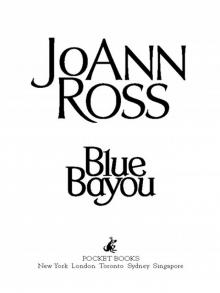 Blue Bayou
Blue Bayou Champagne and Moonlight
Champagne and Moonlight No Regrets
No Regrets Long Road Home
Long Road Home Southern Comforts
Southern Comforts Herons Landing
Herons Landing Untamed
Untamed No Regrets (Mira Romance)
No Regrets (Mira Romance) Dark Desires
Dark Desires Wanted!
Wanted! River Road
River Road Midnight Runaway
Midnight Runaway The Long Way Back
The Long Way Back Michael: The Defender
Michael: The Defender Hot on the Trail
Hot on the Trail When I'm With You
When I'm With You Legends Lake
Legends Lake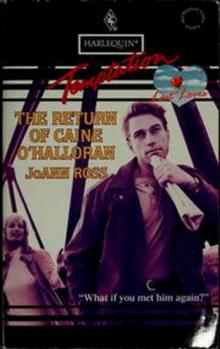 The Return of Caine O'Halloran
The Return of Caine O'Halloran Dance with a Dynasty
Dance with a Dynasty MacKenzie's Woman
MacKenzie's Woman Impulse
Impulse Sunset Point: A Shelter Bay Novel
Sunset Point: A Shelter Bay Novel You Again: A Shelter Bay novella (Shelter Bay series Book 8)
You Again: A Shelter Bay novella (Shelter Bay series Book 8) Guarded Moments
Guarded Moments No Safe Place
No Safe Place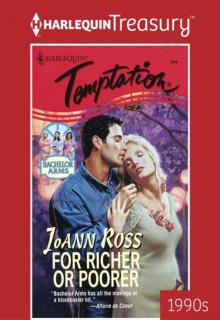 For Richer or Poorer
For Richer or Poorer Private Passions
Private Passions Once Upon a Wedding
Once Upon a Wedding Snowfall on Lighthouse Lane
Snowfall on Lighthouse Lane Christmas on Main Street
Christmas on Main Street A Place in Time (Rum Runner Island Book 1)
A Place in Time (Rum Runner Island Book 1) Leaving Blue Bayou
Leaving Blue Bayou The Return of Caine O'Halloran: Hard Choices
The Return of Caine O'Halloran: Hard Choices Lucky in Love
Lucky in Love The Prince & The Showgirl
The Prince & The Showgirl Castaway Cove
Castaway Cove A Woman's Heart
A Woman's Heart One Summer
One Summer Ambushed
Ambushed It Happened One Week
It Happened One Week Home by the Sea
Home by the Sea Three Grooms and a Wedding
Three Grooms and a Wedding Hunk of the Month
Hunk of the Month Never a Bride
Never a Bride Sun Kissed
Sun Kissed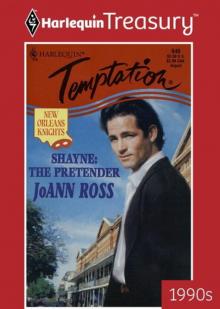 Shayne: The Pretender
Shayne: The Pretender Legacy of Lies
Legacy of Lies Far Harbor
Far Harbor Finn
Finn Roarke: The Adventurer
Roarke: The Adventurer I Do, I Do...For Now (Harlequin Love and Laugher)
I Do, I Do...For Now (Harlequin Love and Laugher) Briarwood Cottage
Briarwood Cottage On Lavender Lane
On Lavender Lane Sea Glass Winter
Sea Glass Winter River's Bend
River's Bend Christmas in Shelter Bay
Christmas in Shelter Bay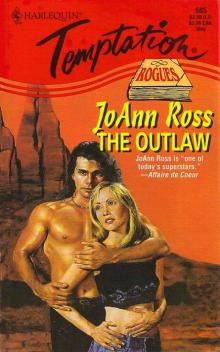 The Outlaw
The Outlaw Castaway Cove (2013)
Castaway Cove (2013) Confessions
Confessions Moonshell Beach: A Shelter Bay Novel
Moonshell Beach: A Shelter Bay Novel